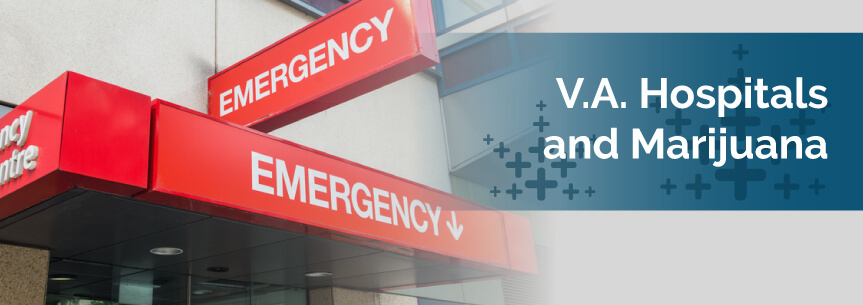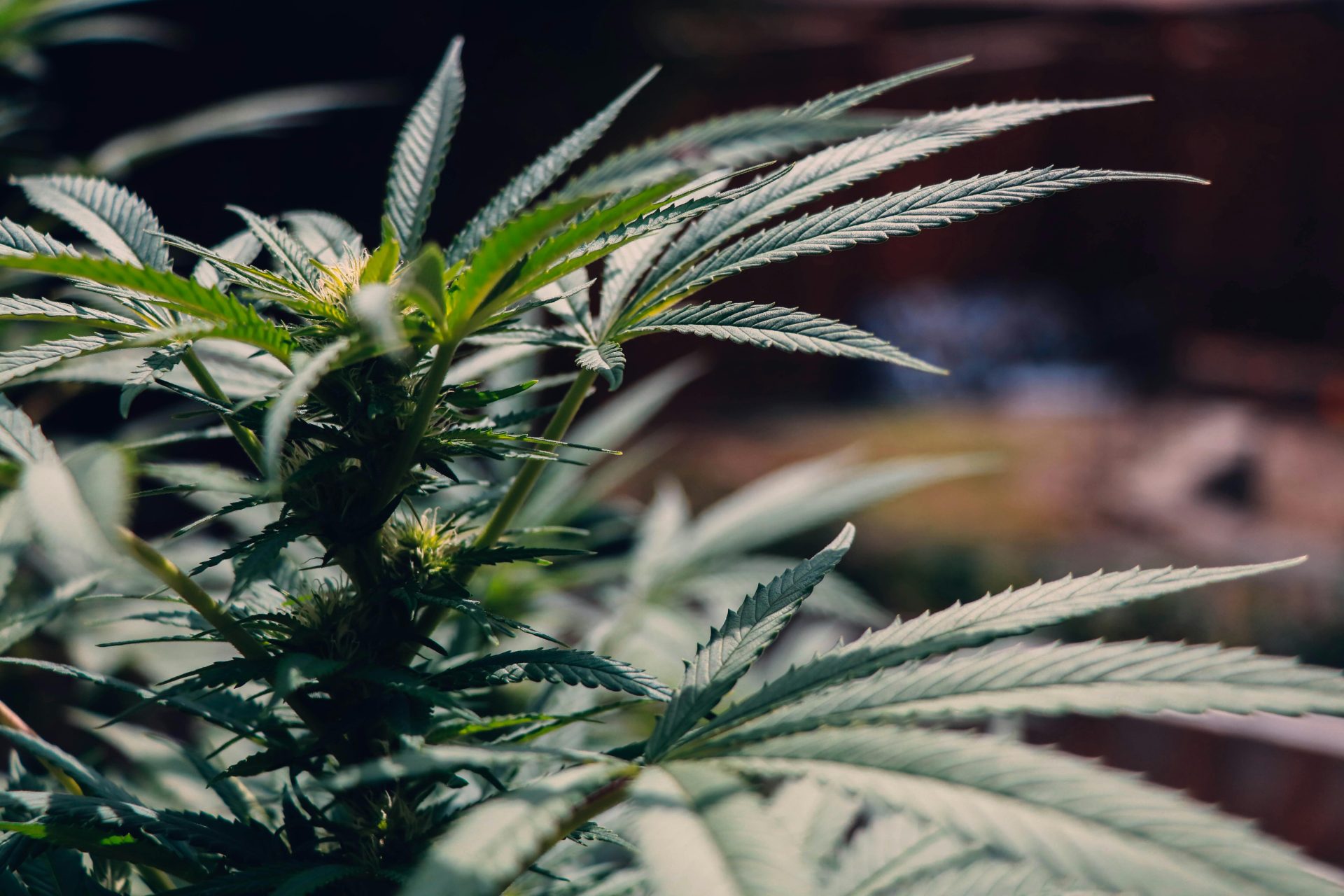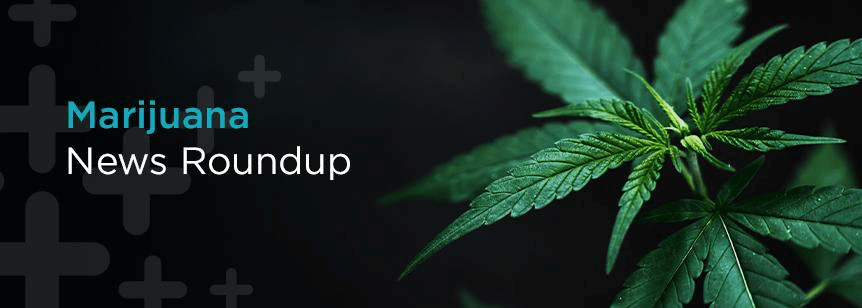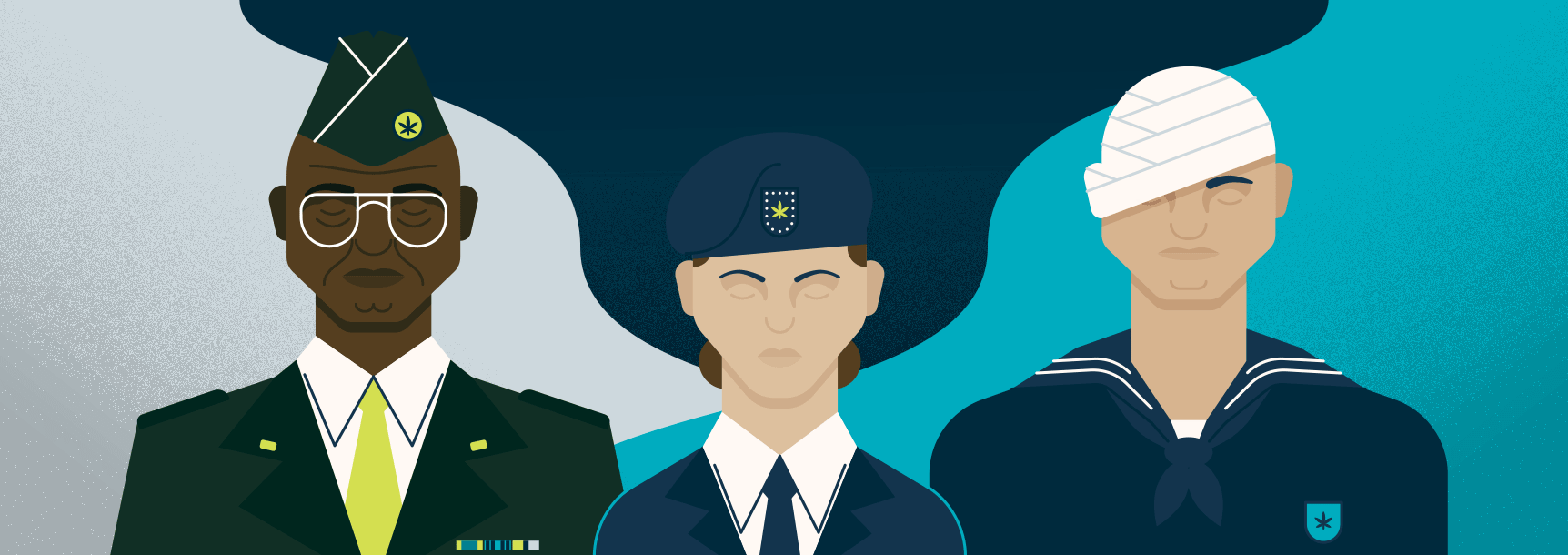Several states in the U.S. have legalized marijuana use in some capacity. For most of those states, medical marijuana is the primary purpose of legalization. However, state laws and federal law don’t agree on the subject of marijuana, with marijuana still classified as a Schedule I controlled substance by the federal government. This places many restrictions on the use and prescription of marijuana — especially for veterans.
Medical Marijuana and Veterans
Veterans face many health challenges not normally faced by the general population. Issues like chronic pain and PTSD are rampant among veteran populations. Unfortunately, this has led to many substance problems, particularly related to opioids. In fact, the death rate from opioids among veterans is almost double the national average.
Marijuana poses a viable alternative to opioids for many veterans dealing with chronic pain, PTSD and other physical and psychological conditions. Versatile and non-lethal even in high doses, marijuana is an excellent resource for veterans and is currently approved as a treatment for PTSD in 14 states out of the 23 states in which medical marijuana is legal.
Unfortunately, federal legislation regarding medical marijuana still lags behind state laws, which poses several problems for patients seeking care. Particularly problematic is veteran care, since veterans seeking care through a V.A. hospital cannot get a medical marijuana prescription through their normal channels due to federal regulations.
Why Can’t V.A. Hospitals Prescribe Marijuana?
The DEA employs a drug scale that has five schedules. The higher the number, the less dangerous the drug. Marijuana is listed as a Schedule I drug, the most dangerous classification. This classification means marijuana can’t be used for medical purposes and has a high potential for abuse. Because of this classification, marijuana is not recognized as a medically significant drug by the federal government.
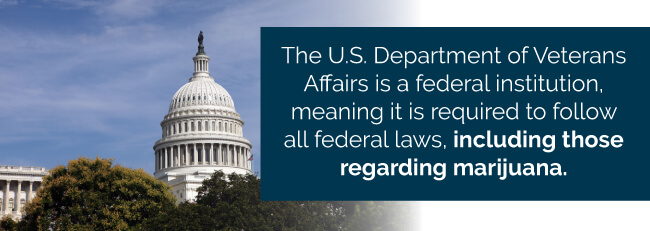
The U.S. Department of Veterans Affairs is a federal institution, meaning it is required to follow all federal laws, including those regarding marijuana. As such, V.A. hospitals and employees working within them are prohibited from recommending or prescribing marijuana as a medical treatment, even if the V.A. hospital is located in a state where marijuana is legal.
So why hasn’t this changed yet? The primary reason medical marijuana still isn’t recognized by the V.A. is that the V.A. recommends its physicians employ “evidence-based” practices proven by scientific research to be effective. Unfortunately, because it is a federally restricted substance, marijuana has undergone little medical research, especially concerning mental and physical conditions like chronic pain and PTSD.
While many veteran and marijuana legalization advocacy groups have collected statements from individuals supporting the efficacy of marijuana for treating pain and PTSD, the V.A. and its physicians will not budge until the law changes or scientific proof is published.
What Does This Mean for Veterans?
While V.A. hospitals face these restrictions, veterans aren’t held to the same requirements. For those living in states where marijuana is legal, medical marijuana is still a viable choice for veterans seeking an alternative type of medication for their chronic pain, PTSD, depression or anxiety condition.
If you are a veteran living in a state where medical marijuana is legalized, keep the following guidelines in mind:
- Access to V.A. Healthcare: If you sign up for a state-approved medical marijuana program, it will not affect your standing regarding V.A. healthcare. Even though the V.A. cannot prescribe or provide marijuana, the V.A. cannot refuse services to veterans participating in state-approved marijuana programs, especially if their use is approved by a non-V.A. healthcare provider.
- Possession is Prohibited: If you do use medical marijuana, do not bring it to a V.A. medical center. These centers operate under federal law, so possession of marijuana within V.A. centers is still considered a crime. If your V.A. physician requests information about your medical marijuana treatment program, write down the information about your strain and bring it to your appointment instead of bringing your marijuana.
Don’t leave it in your car, either — the grounds of a V.A. medical center also fall under federal law and possession of marijuana on V.A. grounds is still illegal.
- Seek Prescription Elsewhere: While you can discuss your medical marijuana prescription with them, you will not be able to receive a marijuana prescription from a V.A. clinician. They also cannot help you complete the paperwork required for veterans to participate in state-approved medical marijuana programs. They can, however, direct you to a non-V.A. healthcare provider.
- Seek Distribution Elsewhere: Even if you have a prescription for medical marijuana, V.A. pharmacies cannot and will not fill prescriptions for medical marijuana. Not only do they not have marijuana, but they also cannot give it to you, as it’s a controlled substance the federal government does not recognize as medically useful.
- Seek Alternative Financing: Even though the state may recognize marijuana as a medically useful substance, the federal government and V.A. do not. As such, the V.A. will not pay for your medical marijuana prescription.
- Discuss Marijuana Use: Even though the V.A. cannot prescribe or recommend marijuana as a treatment option, they can discuss your marijuana use with you. In fact, it is wise for you to discuss your marijuana use with your V.A. clinician, since weed does interact with other drugs, especially anesthesia.
They can advise you on how marijuana will impact other aspects of your care and how it will interact with other medications you’re taking, so it’s important that your V.A. healthcare provider know about your usage so they can account for it in your healthcare regimen and change your prescriptions if need be. It is worthwhile to mention, however, that if you mention your marijuana use to your V.A. clinician, it will show up in your V.A. medical record.
- Consider Your Employment: Veterans who are employees of the V.A. are subject to regular drug testing. Because marijuana is still a federally controlled substance, the V.A. can test for it and terminate employment if THC is found in your system.
Medical Marijuana and PTSD
While many veterans obviously suffer from many types of medical conditions that can be treated with medical marijuana, one that affects a high proportion of vets is post-traumatic stress disorder, or PTSD. There is strong evidence that vets suffering nightmares, difficulty sleeping and flashbacks can benefit greatly from the use of cannabis. While no one suggests it can cure the problem, it can definitely be a very important, effective tool in an overall treatment program.
When they are denied access to medical marijuana, veterans suffering from PTSD are often prescribed powerful opiates that are not only incredibly expensive, but can also result in devastating — and potentially even deadly — side effects. Opiates that are commonly prescribed include:
- Hydrocodone
- Oxycodone, which is commonly referred to as “Oxy”
- Morphine
- Methadone
- Tramadol
These drugs not only have a high potential for abuse, but they can also lead to complications such as liver damage, respiratory depression, brain damage, abdominal distention, paranoia and fatal overdoses. On the other hand, there are no reports on record of anyone ever dying from a marijuana overdose.
Without treatment, PTSD sufferers are highly susceptible to suicidal thoughts — which are, tragically, often put into action. Many experts estimate that, at the very least, an average of 20 veterans commit suicide every day. Many others prescribed opiates for their condition suffer fatal overdoses. Vets who have to turn to the VA for their medical care cannot obtain prescriptions for medical marijuana, even though they may be living in a state where it’s legal.
Keep Up on Marijuana Law
Marijuana law is steadily changing, with new developments appearing on a regular basis. Just last year, an amendment to the V.A.’s budget bill was originally written to allow V.A. physicians to recommend medical marijuana in states where medical marijuana is legalized. It wouldn’t have allowed the V.A. to provide marijuana for these patients, but it would have allowed physicians to talk to their patients about it and complete the necessary paperwork to join state-sponsored marijuana programs.While this amendment didn’t end up passing, similar amendments may appear in the future.
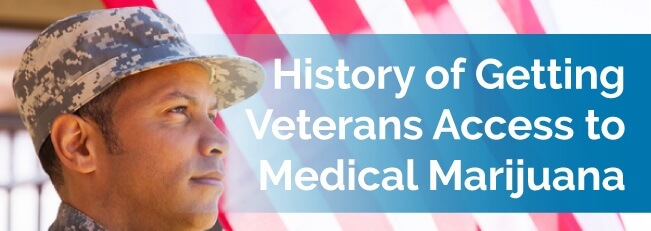
May 2016: A Sign of Progress
Veterans advocacy groups have fought for access to medical marijuana for years to treat PTSD and other conditions. Their efforts looked to have proven successful when the U.S. Senate and House of Representatives approved the Veterans Equal Access Amendment on May 26. This amendment called for an end to the Department of Veterans Affairs (VA) using federal money to stop government-employed doctors from recommending medical marijuana as a treatment option in states where it is legal.
This was an astounding sign of progress, as it was the first time the House and Senate agreed to this type of amendment, one that would remove many of the restrictions that kept vets from gaining legal access to medical cannabis.
The previous two years, the House had prevented the amendment from passing through Congress. But this time, it made it through by a 233-189 vote, which allowed it to be included in the Military Appropriations Bill. The Senate Appropriations Committee approved the amendment by a 20-10 vote.
June 2016: Not So Fast
Resounding success, however, soon turned to bitter disappointment only one month later. On June 23, it was reported that the Veterans Equal Access Amendment had been dropped from the final version of the appropriations bill. Even though it passed the Senate and House by wide margins, a closed-door committee decided to scrap this common-sense piece of legislation that was actually supported by members of both parties.
The amendment would have forbidden the VA from punishing VA doctors who chose to talk about the benefits of medical marijuana. Not only are doctors punished, but veterans who can only afford VA health care cannot gain access to medical cannabis programs run in the states where they are legal. Instead of opening up a path to these vital programs for people who put their lives at risk for their country, this action slammed the door shut.
Rep. Earl Blumenauer, the original House sponsor of the amendment, and several other members of Congress pushed for it to be re-added to the appropriations bill. Eleven lawmakers sent a letter to legislative leaders in both the House and Senate. In the letter, the lawmakers stated that the inclusion of the amendment, which “should have been nonnegotiable,” would have provided a “life-changing benefit” to veterans.
The letter went on to state that the failure of the closed-door committee to include the amendment in the military appropriations bill would not only go against the will of both chambers of Congress, but would also be a “drastic misfortune” for vets.
However, the efforts of the lawmakers proved to be in vain. The bill was eventually passed on September 28 without the amendment.
May 2017: Hopefull Progress
In May of 2017, Veterans Affairs Secretary David Shulkin voiced his opinion on the matter, being pro-medical marijuana for veterans during his “State of the V.A.” report. During this press release, Shulkin pointed out that there is evidence to back that beneficial uses of marijuana for veterans with ailments like PTSD.
What’s Next?
There are several powerful organizations that agree veterans who rely on the VA for their care must be granted access to state-run medical marijuana programs. The American Legion, the largest organization of wartime vets in the country, has voiced its support for access to medical marijuana, calling for Congress to take cannabis off its list of Schedule I drugs, which are regarded by the federal government as “the most dangerous.”
A representative from the American Legion recently met with President Donald Trump’s team to outline the Legion’s main priorities when it comes to supporting veterans. At the top of the list was a push to reclassify marijuana from a Schedule I drug to a Schedule III drug. This would allow researchers easier access to quality marijuana strains so they can better study the medical benefits of the drugs. In addition, a re-classification would very likely make it easier for vets to access medicinal marijuana through the V.A.
Even the Drug Enforcement Administration (DEA) has announced it is open to more research into the effectiveness of medical uses for marijuana. This could eventually open the door to V.A. acceptance.
With promising evolvements like these, we should see improved veteran access to medical marijuana in the coming months. Keep up to date on the latest developments in marijuana law by following our news and blog page. Simply browse through the Medical Marijuana Law page of our blog to learn more!

